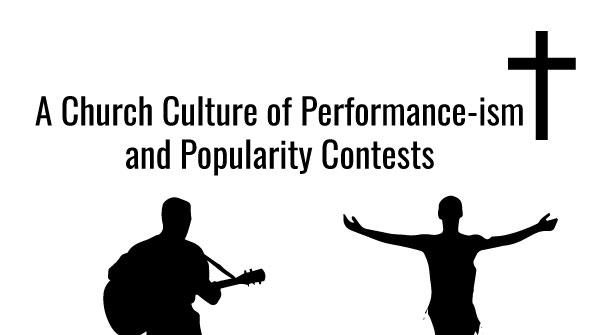 I went home this Easter and watched a streaming video of my home church’s Easter worship service. This was during the Covid ‘stay at home’ mandate so it was appropriate to sit at home and watch the message. A flood of anxious emotion came over me as we watched what seemed like a recounting of my childhood experience at church, and my adolescence years in the 90’s which can be summed up in performance-ism and popularity contests. To this day, my default way of finding validation in the world is through doing something in a way of performing for the approval of others which often includes bits of shame, guilt, fear, control, or pride mixed in.
I went home this Easter and watched a streaming video of my home church’s Easter worship service. This was during the Covid ‘stay at home’ mandate so it was appropriate to sit at home and watch the message. A flood of anxious emotion came over me as we watched what seemed like a recounting of my childhood experience at church, and my adolescence years in the 90’s which can be summed up in performance-ism and popularity contests. To this day, my default way of finding validation in the world is through doing something in a way of performing for the approval of others which often includes bits of shame, guilt, fear, control, or pride mixed in.
My family sat together and experienced the whole thing and for me it was a trip down memory lane through my church existence. We listened to the worship music, the pastor of my childhood shared the message, and then it was concluded with a pre-recorded rendition of ‘Arise my Love’ with the full choir and orchestra. ‘Arise My Love’ was a song that our church youth choir performed for several years during my tenure in the high school choir through my senior year of highschool in 2000. During this time, my church began using this song in all of their Easter performances. It was so loved that every time it was performed that I can remember, it drew standing ovations.
20 years after my high school graduating year, it brought back a lot of emotion watching the whole church performance live from home thinking through my childhood church experience while also knowing the future faith, or lack of faith, of many of the lives of those in the high school choir with me.
It stuck out to me that the same pastor I sat through for years as a child was still consistent in his delivery of an opening joke, the continual usage of ‘acronyms’ such as hope is ‘having only positive expectations’, and repeat after me Bible-talk ‘colloquialisms’ like ‘ask Jesus into your heart’ and pray the sinner’s prayer of salvation in this way. And then reading the Bible using a sort of simplified ‘watered down’ language, most likely The Message, rather than the rich language of the Bible that I read on a regular basis.
Then, the surprise performance of ‘Arise My Love’ really brought my emotions to the scene. Our childhood church youth choir did a sort of dramatic performance version with choreography. I recalled the fact that my senior year of church youth choir, I was chosen as one of the ‘special’ young men to stand in front of the choir to do the choreography. I might add, I was also one of the soloists in the choir and in the ensemble that also sang throughout the year in special performances. Let’s just say, this wasn’t my first rodeo in the youth choir.
What distinctly came to mind as I watched the Arise My Love performance was the impression I had of how I was removed from the front and center stage in our annual choir tour’s homecoming performance. At the time, when I was told that I would not be doing the choreography in the front by two of the volunteer adults, I shrugged it off as if I didn’t care, but deep down it was a devastating blow to my desire to gain the approval of others. I recalled how during the performances prior to the homecoming concert, these two same adult volunteers watching me like a hawk and noticing my less the perfect performance. I do recall that I was not the best at choreography but I certainly gave it my all at playing the part. Though I remember thinking deep down, I couldn’t shake the fact that I thought choreography was stupid and why everyone seemed to love it so much. I’m sure that came through in my performance. But as a 17 year old boy who wrapped up a lot of his identity in church choir, it hurt when I was removed from the stage.
What topped it off, was not that I was removed from the performance, but some of the commotion in the crowd after the completion of the homecoming show. I was standing around down near the stage afterwards where we usually received praise from adults and well wishes from our peers, and I remembered that one of the volunteers who had previously removed me from the front stage telling someone how much they admired my two younger brothers and thought they were wonderful.
This is not a sob story about my feelings of neglect, but it as about the culmination of my understanding of my identity through the lens of performance-ism and gaining the approval of others. I knew I was not popular, but it further confirmed my suspicions that I did not ‘make the cut’ of the cool kid crowd. Really, the main factors in who was chosen to stand down front and do the choreography were a combination of not just ‘perfect’ movements but also the kids who were the chosen ones that received the most praise from the volunteers.
Even sharing this emotion and the experience seems silly but there is a serious aspect to this post. As I recall it, looking back after 20 years, the focus has always been on a sort of performance-ism model and secondarily a popularity contest. It was as if some kids could do no wrong and they were still loved and cherished by everyone. This performance-ism and popularity contest is not just a factor in the church choir, it is the primary factor for the pastor and the church culture at large that I experienced as a kid. The pastor, who was far from a ‘shepperd’, was more of a professional student of receiving praise and posing as a Biblical scholar and beloved pastor. He was ultimately a skilled performer who could woo an audience, make everyone feel like they were important when he was around (which was rarely the case on a personal basis), sit in his office and read and write, and come out anytime there was a need for a performance to motivate and rally for a specific internally focused cause.
As an adult, I can make this declaration after traveling in a Christian band that toured all over East Texas visiting churches who all looked, acted, and felt the same. Even in my work career, I had a stint at a well regarded Baptist organization who provided specific support services for churches across the nation. The CEO was a former megachurch pastor, the same exact personality type of my home pastor, a vague and elusive figure that came out and gave everyone high fives but didn’t actually get to know anyone past ‘a word from their leader’. He wrote books and traveled speaking. I learned through these experiences that there was a whole network of pastors and churches where some were chosen as the model with a charisma and charm who were good communicators. It was one that often had good intentions but ultimately was won over by a marketing and performance based criteria in an era of rapid church growth.
This culmination of the church era seemed to hit its pinnacle at the end of the 90’s. What has followed is the attempt to maintain the continuity of the control and comfort of the status quo to keep things together. To me, after years trying to make my way in for-profit companies, the church system is a mirror of the for-profit businesses I’ve been in that are focused on maintaining the status quo and trying to force growth in an era that is forcing them into a new ‘individualized’ model of doing business.
To be clear, I am still a believer in Jesus. I still love the Lord. I know many people who go to my home church that do love the Lord and are genuine in their faith. But, Christianity is more a reflection of the rhythms of your home where the gospel is lived out with your closest neighbor and you are seen and known. While the church sought after experiences that ultimately brought a culture of performance and popularity. Going bigger is not always better and is often a recipe for spiritual posturing rather than learning humility and dependence on the Lord. Hope is not about ‘having only positive expectations’ it is about learning to live daily in the sufficiency of Christ.
As Corinthians 2:15 – 3:1a states “For we are the aroma of Christ to God among those who are being saved and among those who are perishing, to one a fragrance from death to death, to the other a fragrance from life to life. Who is sufficient for these things? For we are not, like so many, peddlers of God’s word, but as men of sincerity, as commissioned by God, in the sight of God we speak in Christ. Are we beginning to commend ourselves again?”
We must not continue to commend ourselves or seek approval of others, those in authority. We must turn our affections and pray for humility and dependency on Christ through His Holy Spirit. It is so easy to learn a way of posturing rather than dependency on the Holy Spirit. We need the Holy Spirit, as we need the presence and power of God to work through us. Without Him, we are reducing the message of who God is which can stand and does stand alone without any stage or performance or marketing. We should not promote a weak God, we don’t need a bigger building or a more perfect worship service. We need to be known by God and seek to know Him.

